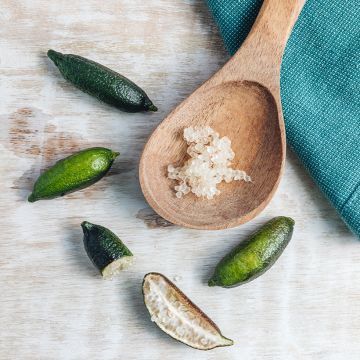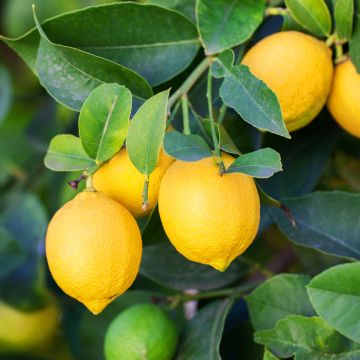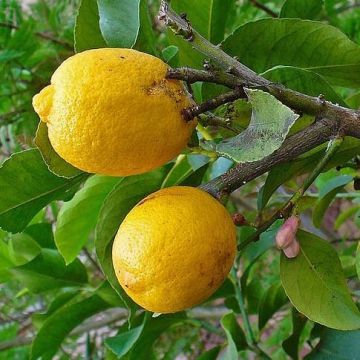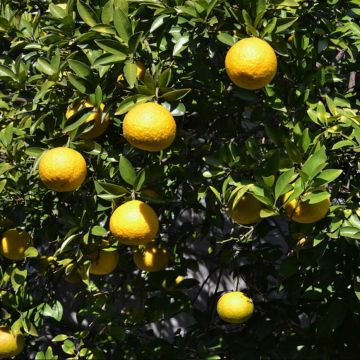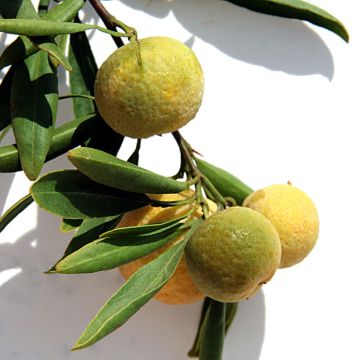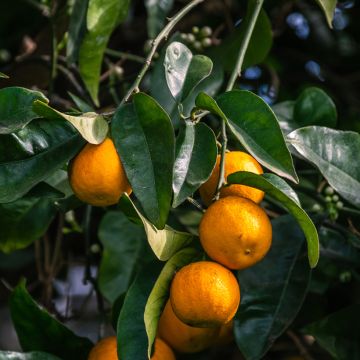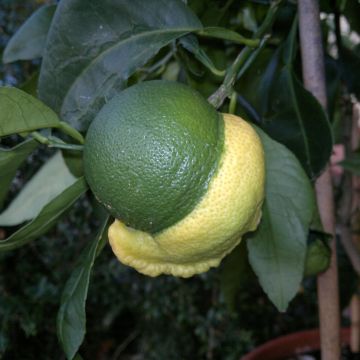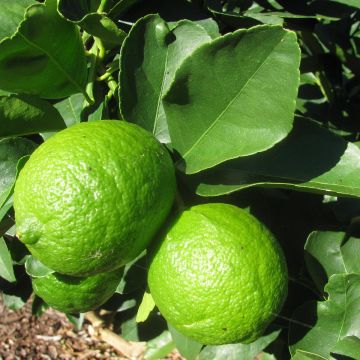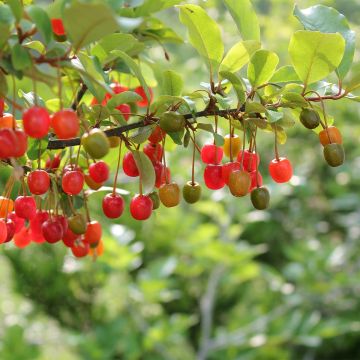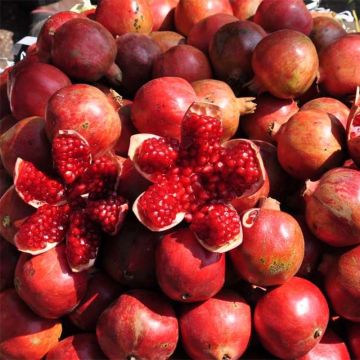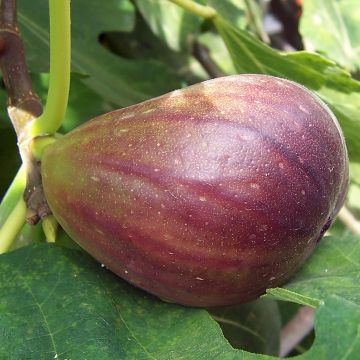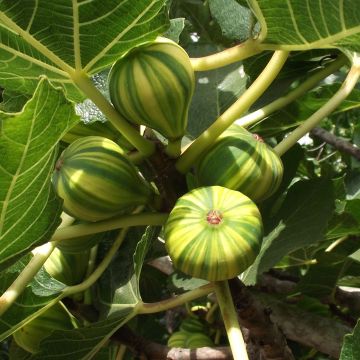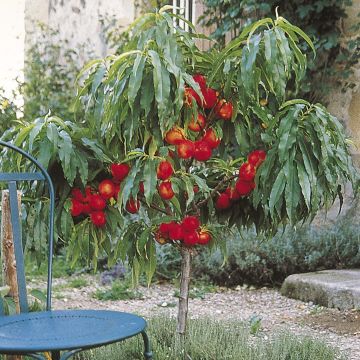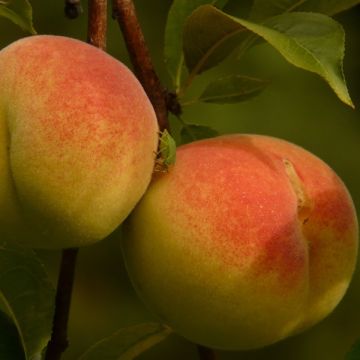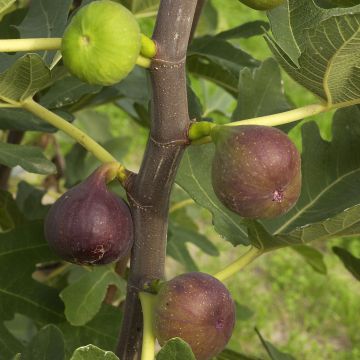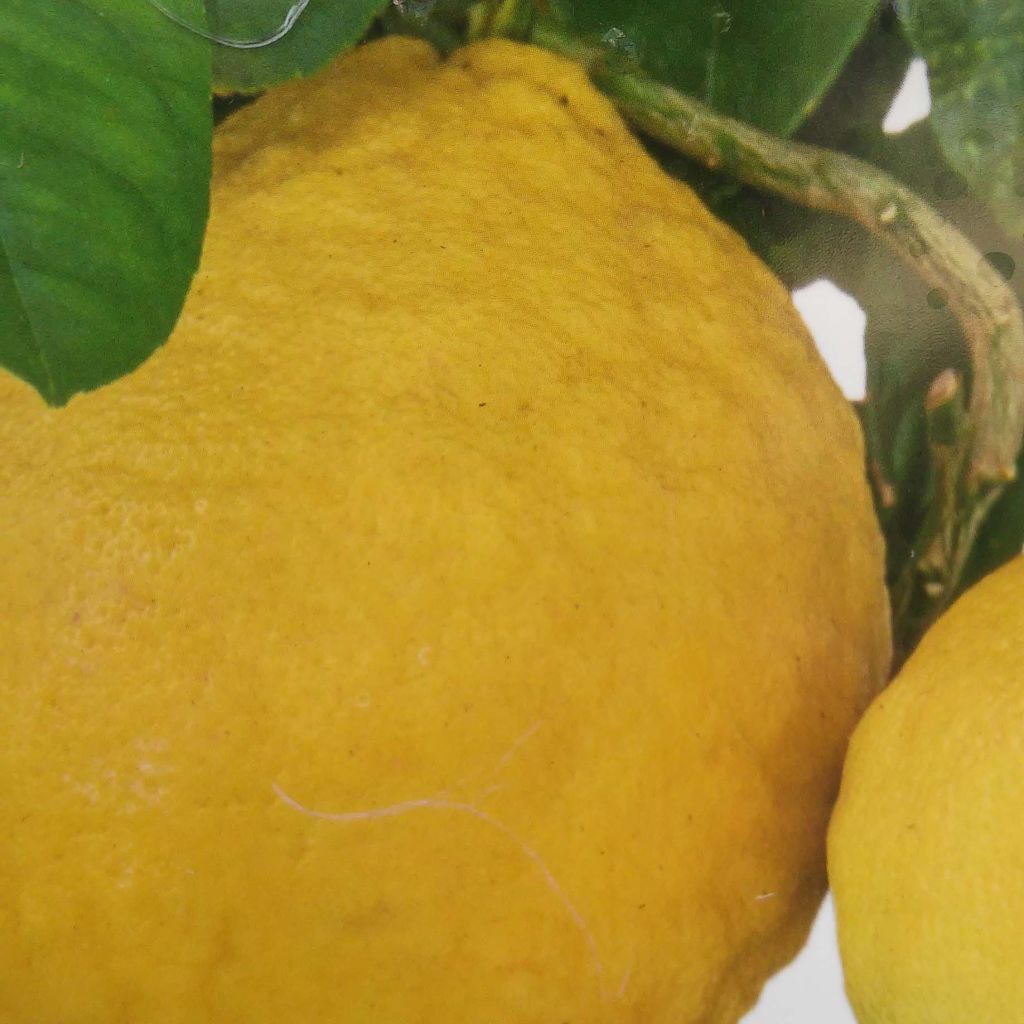

Citrus Lipo - Hybrid Citrus


Citrus Lipo - Hybrid Citrus
Citrus Lipo - Hybrid Citrus
Citrus Lipo
Citrus
Vraiment pas déçu du produit , mais le pot en plastique est arrivé explosé. La faute du transporteur certainement
Gilles , 23/12/2023
Special offer!
Receive a €20 voucher for any order over €90 (excluding delivery costs, credit notes, and plastic-free options)!
1- Add your favorite plants to your cart.
2- Once you have reached €90, confirm your order (you can even choose the delivery date!).
3- As soon as your order is shipped, you will receive an email containing your voucher code, valid for 3 months (90 days).
Your voucher is unique and can only be used once, for any order with a minimum value of €20, excluding delivery costs.
Can be combined with other current offers, non-divisible and non-refundable.
Home or relay delivery (depending on size and destination)
Schedule delivery date,
and select date in basket
This plant carries a 6 months recovery warranty
More information
We guarantee the quality of our plants for a full growing cycle, and will replace at our expense any plant that fails to recover under normal climatic and planting conditions.

Description
Citrus 'Lipo' is the result of cross-breeding between the Lemon (Citrus limon) and the Grapefruit (Citrus paradisi). This hybrid forms a very beautiful bush, reaching 4m (13ft) in height, and produces clusters of large, perpetual flowers, white and waxy, with a sweet fragrance. Everything is large about this citrus tree, from the leaves to the yellow fruits that can exceed 12cm (5in) in diameter. Their flesh is juicy and less acidic than in lemons. Susceptible to cold temperatures below -4°C (24.8°F), it is best grown in mild climates in open ground; elsewhere, it can be cultivated in a large container, overwintered in a frost-free greenhouse or conservatory.
Citrus limon x C. paradisi 'Lipo' is also known as the 'Imperial Lemon' in English due to the majestic size of its fruits. Popularized during the 1970s, it is a medium-sized bush with dense foliage, belonging to the Rutaceae family. Its habit is naturally rounded. This beautiful tree reaches a height of 4m (13ft) and spreads over about 2m (7ft) when grown in open ground under favourable conditions. Its growth will, of course, be more limited in a pot. The 'Lipo' Citrus has a perpetual flowering. Its large flowers are white, star-shaped, divinely scented, and arranged in clusters. They give way to fruits resembling very large lemons, weighing over 500g. The moderately thick skin, initially green and then yellow at ripeness, has a somewhat granulose appearance. The flesh of the fruit, white-greenish and translucent, is less acidic than that of lemons. The large leaves are evergreen, leathery, and aromatic.
Like all Citrus trees, the Lipo contains essential oil pockets in its leaves, flowers, and fruits, often visible to the naked eye. Essential oil with antiseptic, tonic, and appetizing properties is extracted from them through distillation (flowers and leaves) or pressing (zest). The fragrance of the essential oil is described as fruity, tangy, slightly bitter, with floral notes.
Most citrus trees thrive in open ground in Mediterranean coastal regions, where they find the necessary year-round warmth. But to bear fruit well, they must not lack water or nutrients. It is a self-fertile bush, meaning that a single individual is sufficient for complete pollination and fruiting. 'Lipo' is a very beautiful ornamental tree in very mild climates: with its superb deep green and shiny foliage, its clusters of large fruits, and its naturally balanced habit, it is particularly decorative.
Report an error about the product description
Citrus Lipo - Hybrid Citrus in pictures
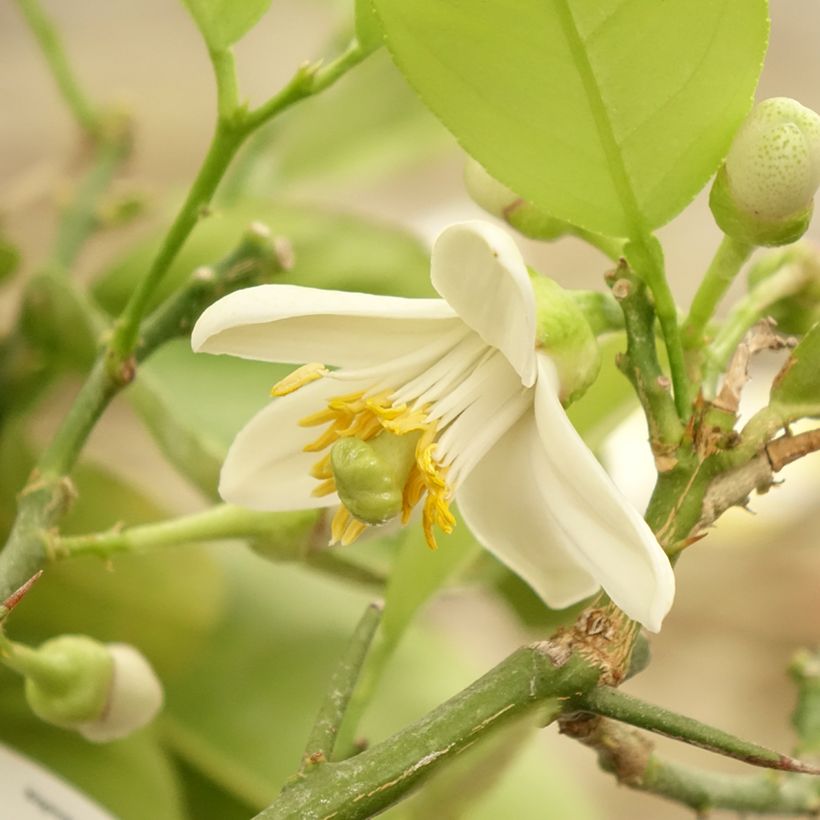



Plant habit
Fruit
Flowering
Foliage
Botanical data
Citrus
Lipo
Rutaceae
Citrus
North America
Other Citrus trees
View all →Planting and care
Planting in open ground: 'Lipo' trees appreciate neutral, slightly acidic and non-calcareous soils, but they are less demanding in terms of soil pH than most other citrus trees. It is reasonable to plant them in open ground only if you live on a Mediterranean coastal strip. The best time to plant is in early spring, in March and April. Be careful not to bury the collar. Citrus trees are naturally greedy and require water to bear fruit well: in all cases, consider amending with well-decomposed compost or "special citrus" fertilizer. Choose a sunny but not scorching location for your bush, sheltered from the wind to prevent foliage drying out and young fruits from dropping. Place it in a location protected from sea spray.
Pot planting: in all other regions, 'Lipo' will be planted in a pot that can be kept in a greenhouse or a very lightly heated conservatory, but frost-free permanently and it will appreciate being outdoors in summer. Pot planting or repotting takes place at the end of summer. Choose a pot slightly larger than the root system, citrus trees do not like feeling cramped. Moisten the root ball well. To improve the drainage capacity of the mixture, line the bottom of the pot with clay pebbles. Loosen the root ball and mix two-thirds garden soil with one-third "special citrus" potting soil. Water generously. Prefer pots made of terracotta or breathable material.
Citrus trees need a lot of water to thrive. Your citrus tree should be watered every day with preferably low or non-calcareous water, and the soil should remain consistently moist. Similarly, make sure to regularly provide it with the fertilizer it needs: every 6 months for slow-release granular fertilizer or every 3 waterings for liquid fertilizer.
Planting period
Intended location
Care
-
, onOrder confirmed
Reply from on Promesse de fleurs
Similar products
Haven't found what you were looking for?
Hardiness is the lowest winter temperature a plant can endure without suffering serious damage or even dying. However, hardiness is affected by location (a sheltered area, such as a patio), protection (winter cover) and soil type (hardiness is improved by well-drained soil).

Photo Sharing Terms & Conditions
In order to encourage gardeners to interact and share their experiences, Promesse de fleurs offers various media enabling content to be uploaded onto its Site - in particular via the ‘Photo sharing’ module.
The User agrees to refrain from:
- Posting any content that is illegal, prejudicial, insulting, racist, inciteful to hatred, revisionist, contrary to public decency, that infringes on privacy or on the privacy rights of third parties, in particular the publicity rights of persons and goods, intellectual property rights, or the right to privacy.
- Submitting content on behalf of a third party;
- Impersonate the identity of a third party and/or publish any personal information about a third party;
In general, the User undertakes to refrain from any unethical behaviour.
All Content (in particular text, comments, files, images, photos, videos, creative works, etc.), which may be subject to property or intellectual property rights, image or other private rights, shall remain the property of the User, subject to the limited rights granted by the terms of the licence granted by Promesse de fleurs as stated below. Users are at liberty to publish or not to publish such Content on the Site, notably via the ‘Photo Sharing’ facility, and accept that this Content shall be made public and freely accessible, notably on the Internet.
Users further acknowledge, undertake to have ,and guarantee that they hold all necessary rights and permissions to publish such material on the Site, in particular with regard to the legislation in force pertaining to any privacy, property, intellectual property, image, or contractual rights, or rights of any other nature. By publishing such Content on the Site, Users acknowledge accepting full liability as publishers of the Content within the meaning of the law, and grant Promesse de fleurs, free of charge, an inclusive, worldwide licence for the said Content for the entire duration of its publication, including all reproduction, representation, up/downloading, displaying, performing, transmission, and storage rights.
Users also grant permission for their name to be linked to the Content and accept that this link may not always be made available.
By engaging in posting material, Users consent to their Content becoming automatically accessible on the Internet, in particular on other sites and/or blogs and/or web pages of the Promesse de fleurs site, including in particular social pages and the Promesse de fleurs catalogue.
Users may secure the removal of entrusted content free of charge by issuing a simple request via our contact form.
The flowering period indicated on our website applies to countries and regions located in USDA zone 8 (France, the United Kingdom, Ireland, the Netherlands, etc.)
It will vary according to where you live:
- In zones 9 to 10 (Italy, Spain, Greece, etc.), flowering will occur about 2 to 4 weeks earlier.
- In zones 6 to 7 (Germany, Poland, Slovenia, and lower mountainous regions), flowering will be delayed by 2 to 3 weeks.
- In zone 5 (Central Europe, Scandinavia), blooming will be delayed by 3 to 5 weeks.
In temperate climates, pruning of spring-flowering shrubs (forsythia, spireas, etc.) should be done just after flowering.
Pruning of summer-flowering shrubs (Indian Lilac, Perovskia, etc.) can be done in winter or spring.
In cold regions as well as with frost-sensitive plants, avoid pruning too early when severe frosts may still occur.
The planting period indicated on our website applies to countries and regions located in USDA zone 8 (France, United Kingdom, Ireland, Netherlands).
It will vary according to where you live:
- In Mediterranean zones (Marseille, Madrid, Milan, etc.), autumn and winter are the best planting periods.
- In continental zones (Strasbourg, Munich, Vienna, etc.), delay planting by 2 to 3 weeks in spring and bring it forward by 2 to 4 weeks in autumn.
- In mountainous regions (the Alps, Pyrenees, Carpathians, etc.), it is best to plant in late spring (May-June) or late summer (August-September).
The harvesting period indicated on our website applies to countries and regions in USDA zone 8 (France, England, Ireland, the Netherlands).
In colder areas (Scandinavia, Poland, Austria...) fruit and vegetable harvests are likely to be delayed by 3-4 weeks.
In warmer areas (Italy, Spain, Greece, etc.), harvesting will probably take place earlier, depending on weather conditions.
The sowing periods indicated on our website apply to countries and regions within USDA Zone 8 (France, UK, Ireland, Netherlands).
In colder areas (Scandinavia, Poland, Austria...), delay any outdoor sowing by 3-4 weeks, or sow under glass.
In warmer climes (Italy, Spain, Greece, etc.), bring outdoor sowing forward by a few weeks.






























